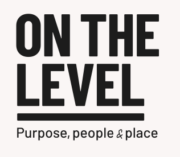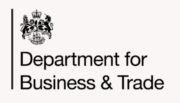Breaking the reactive cycle: Reclaiming Leadership from within
For many leaders, life’s challenges leave invisible patterns running in the background - reactive habits, emotional disconnection, or limiting beliefs that shape how they lead. These patterns can keep you stuck, feeling anxious or unable to access your full potential.
Breaking the Reactive Cycle: Reclaiming leadership from within
Pride in Leadership recently hosted an insightful session with Paul Haynes, an advanced PCC-certified coach with over 15 years of experience in leadership development and personal transformation.
The event focused on helping leaders recognise and break free from reactive patterns that may be limiting their potential. The workshop focused on understanding and transforming reactive cycles through self-connection. Paul’s approach cantered on the concept of operating either “above the line” or “below the line” – a simple but powerful framework for understanding our emotional states and reactions.
Above and below the line
- Above the line: Characterised by spaciousness, freedom, relaxation, and openness
- Below the line: Marked by feeling triggered, constricted, defensive, or needing to protect oneself
The three reactive patterns
Paul introduced three broad categories of reactive patterns:
- Controlling: Taking over, micromanaging, seeking perfection
- Complying: Avoiding conflict, people-pleasing, saying yes when meaning no
- Protecting: Shutting down, withdrawing, becoming defensive
The workshop included practical exercises focused on:
Breathwork
Paul demonstrated a simple but effective breathing technique:
- Inhaling through the nose into the belly
- Brief, comfortable hold
- Longer, slower exhale through the mouth
Body Scanning
Participants were guided through a systematic body awareness exercise, moving attention from head to toe, helping them:
- Connect with physical sensations
- Notice areas of tension or ease
- Create space for awareness beyond analytical thinking
Key takeaways
- The importance of creating space in our lives for self-awareness and reflection
- Recognition that reactive patterns, especially in the LGBTQ+ community, may be shaped by past experiences and societal pressures
- The value of moving beyond purely analytical thinking to include bodily awareness and emotional intelligence
- Simple techniques like conscious breathing can help shift from reactive to responsive leadership
Looking forward
Paul emphasised that this session was just a starting point for deeper work. He encouraged participants to make space for themselves through activities like walking or exercise, focusing on creating space rather than forcing solutions.
Video below














